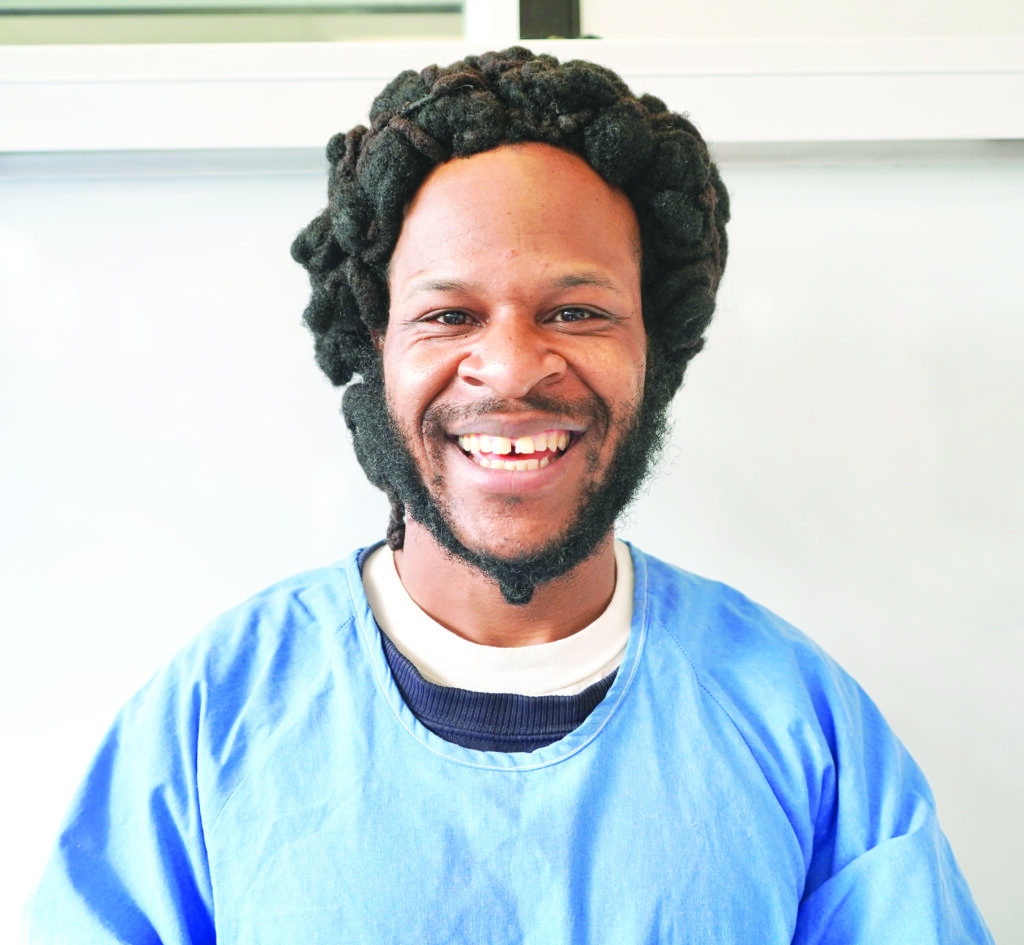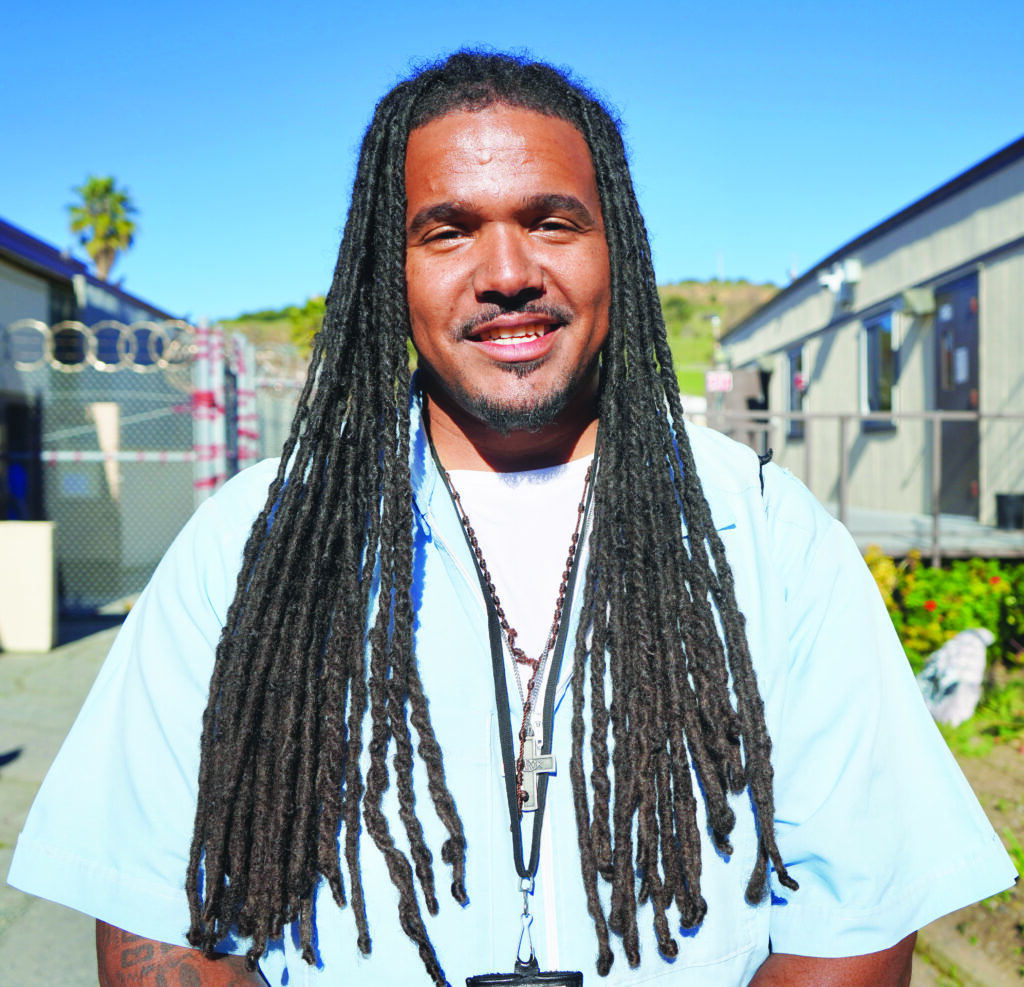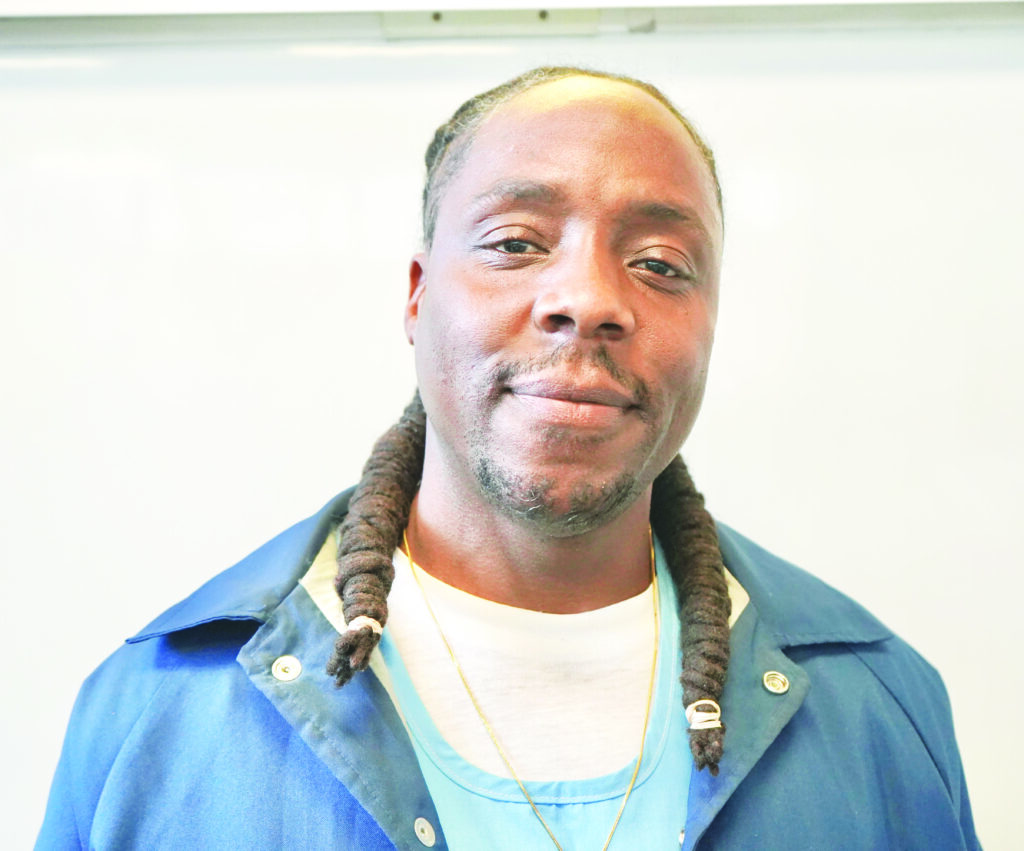

Jamario Moore, a San Quentin resident, says that wearing dreadlocks, even in this day and age, can get you in trouble.
Moore said that he has had negative reactions from correctional officers because of his hair choice.
“One day at yard recall, the C/Os [Correctional officers] said everybody with dreadlocks stay outside. Then they took our ID’s without an explanation.” Moore said.
The officers later told them, that because of their dreads they felt they would be causing problems at the prison, Moore said.
Around the world, dreadlocks, long popular in the Black community, have on occasion been stigmatized in other settings. Some residents at San Quentin shared their stories in hopes of changing that narrative.
The origin of dreadlocks can be traced to ancient Egypt, the Sahara and other corners of Africa where Black people have traditionally worn their hair this way, according to Wikipedia.
“I started growing my locks 25 years ago while on the streets with my son’s mother during Kwanza,” said, Ralph “Amin” Brown, a San Quentin resident. (Kwanza is a celebration begun by Maulana Ron Karenga of Los Angeles as an alternative to the traditional Christmas observance.)
In the book Hair Story: Untangling the Roots of Black Hair in America, the author said that the origin of the name dreadlocks began during Trans-Atlantic the slave trade. After spending months cramped below decks in slave ships, the Africans’ hair became matted and tangled.
”When I told my Queen [his wife] I was getting locks,” Mr. Brown’s wife response was, “Oh yeah, Dreadlocks!”
Brown replied, “I said, ‘No. They are locks and it is nothing dreadful about them.’ I had to educate her on our history and why Europeans called us that-dreadful.”


Wikipedia said that from the African diaspora to the Western diaspora, Black people’s stories about their locks affirmed the strength and truth of what their hair choices really mean to them.
“I consider my locks my crown,” Brown said. “Me being a Black man having a crown represents me knowing I have a choice.”
Governor Gavin Newsom signed the Crown Act into law On July 3, 2019. It pertains to hair discrimination, but even with the passing of the Crown Act, African Americans say they are experiencing what scholars call “hairism-discrimination.”
Because of the Crown Act, imprisoned people with dreads now live with less fear of discrimination from prison staff, they say, adding the new rule makes institutions more inclusive with freedom for residents to be themselves.
Wikipedia said a study found that 25% percent of Black women have been denied employment because of their hair alone. From Africa, to England, to Texas, reports have been published that Black youngsters have been subjected to suspension from school because of their dreads.
Brown said, “I can say both times I cut my dreads, I was back on some bull crap (negative behavior). I never noticed until you asked, but every time I cut them I went back to my old ways, less peaceful.”
Wikipedia says that the dreadlocks are believed to connect a person to the spirit world. That’s another reason Black people grow their locks and nurture the health of their hair.
SQ resident Delvon Adams related this incident, “My mom had alopecia (A disease that causes hair loss). She was visiting one day and I gave her a lock that I pulled out. I felt I lost something, but I gave my mom that lock and through that connection from that one, she grew hers [locks].”
Rastafarians are people who are inspired by the Bible; their locks are a symbolic connection to African culture.
The Ethiopians were seen wearing dreadlocks during the Italian-Ethiopian War in the 1930s when Benito Mussolini invaded. During the invasion a vow was made not to cut their hair, noted Wikipedia.
SQ resident Steven Warren said, “For me it is the equivalent to having lion’s mane. It’s the connection to Biblical times. Samson and the Nazarites,” Warren said. “I felt I had a mission, and I knew I needed a particular piece of power that only the most high could provide, so I made a vow while embarking on this journey.”
“Your hair comes as it should, and it’s not to be altered with chemicals. Your hair connects you to the most high God so let it swing,” Warren said.